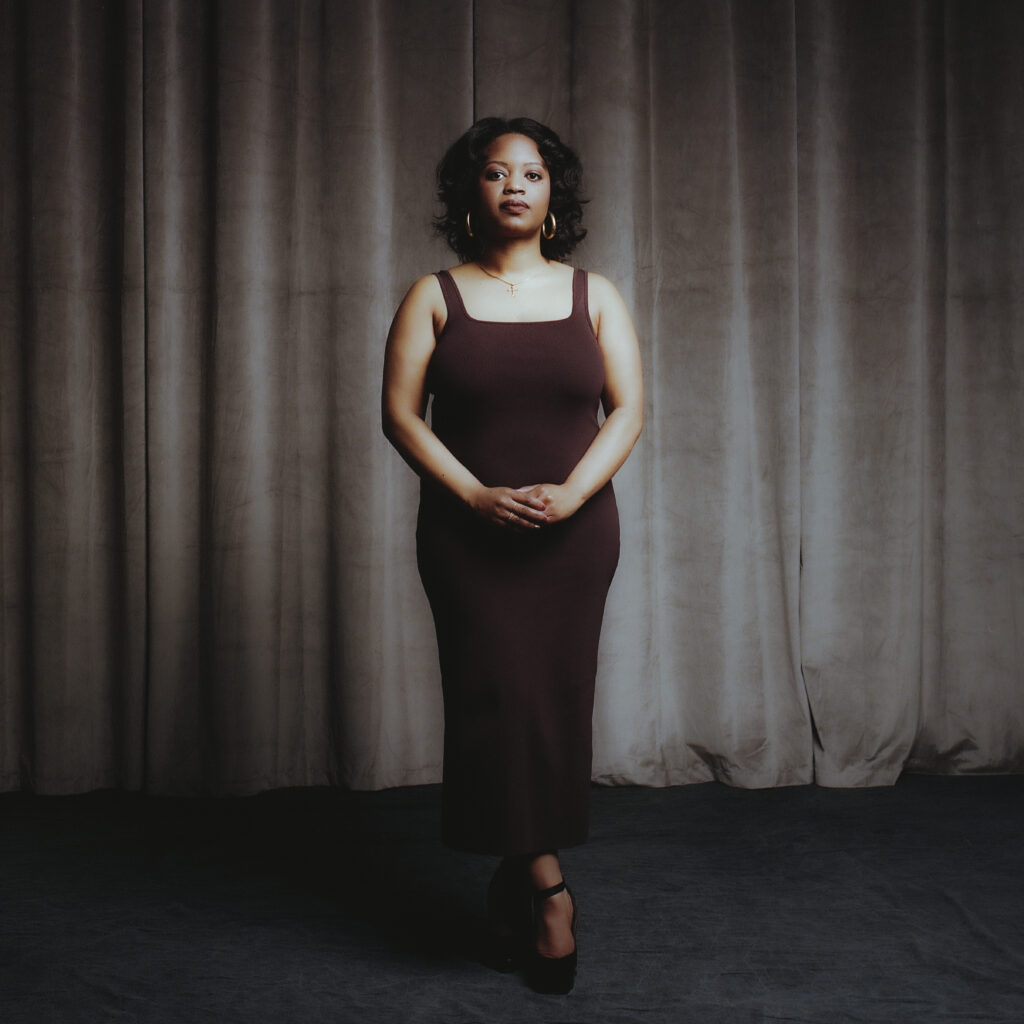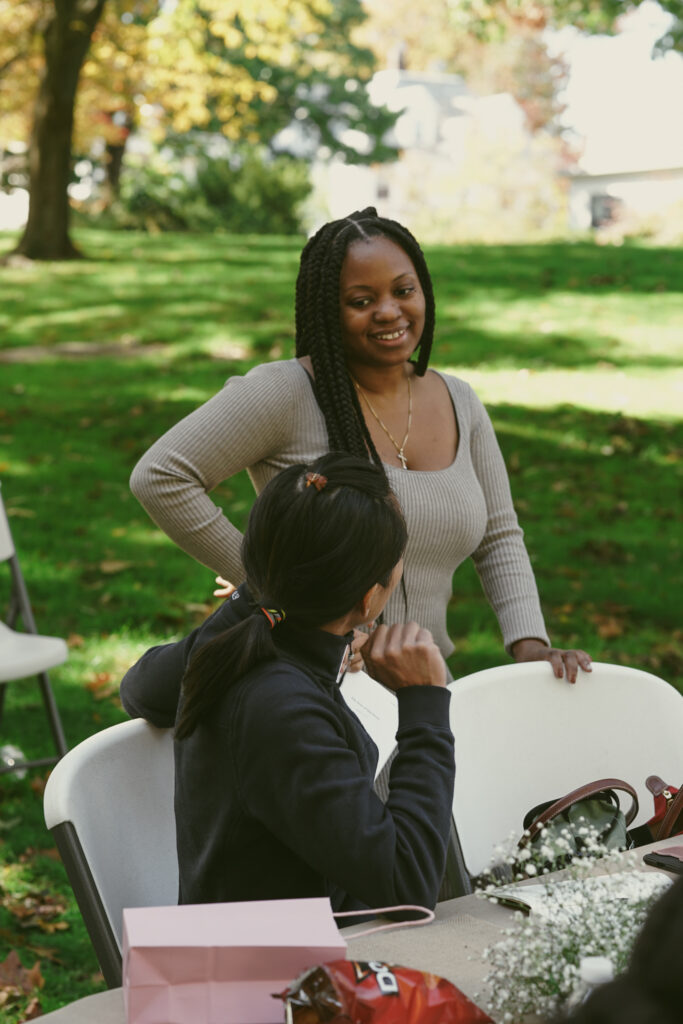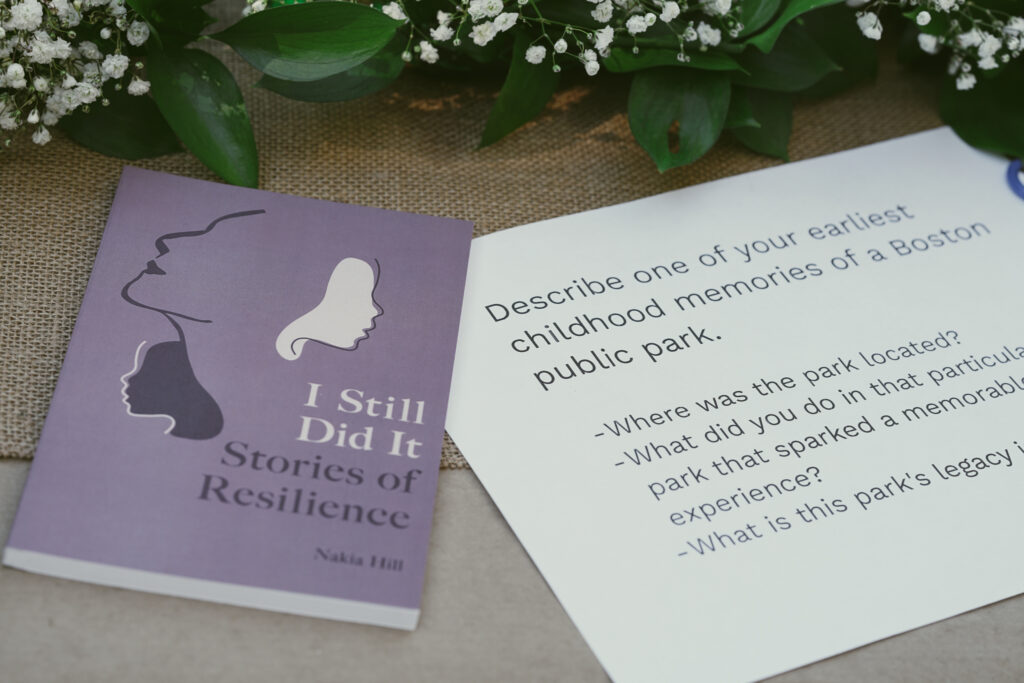Hill, MA ’12 Uses Journalism Skills to Connect Boston and Its Residents
The idiom “wearing many hats” is an understatement for Nakia Hill, MA ’12.
“I’m a writer. I’m a journalist, by practice. I’m an author. I’m an educator. I teach writing at GrubStreet. I’m a community leader, because I am invested in the city of Boston,” said Hill, who recently became the first-ever Director of Communications for Boston’s newly-formed Community Engagement Cabinet.

The Community Engagement Cabinet leads the City of Boston’s work eliminating silos between Boston residents and City Hall. Their goal is to better connect neighborhood services, community engagement, and policy-making. They want to improve how Boston includes community voices in its decision-making.
“I look at my job as a messenger and translator — to translate complex initiatives and policies to residents so they are aware of what is happening in their city. I also want to make sure that I am communicating that the city welcomes constituents to have a seat at the table to be a part of city efforts, so residents are a part of the decision-making process and their voices and opinions are not only heard, but considered,” said Hill.
The Cabinet also raises awareness about Boston’s Neighborhood Liaisons, who help residents navigate issues and challenges that could include everything from opening a new business to finding shelter after a house fire, Hill said.
Much of the Cabinet of Community Engagment’s work is boots on the ground in Boston neighborhoods to meet people where they’re located. That could mean attending a community meeting, reading at an elementary school, or connecting residents to available resources offered by the various city departments from Arts and Culture to Food Justice.
Hill’s prior jobs included working at the nonprofit 826 Boston as the director of youth writing program innovation and partnerships. She was an artist-in-residence for the City of Boston Department of Arts and Culture , which she said sparked her interest in government. She was the first Black woman to be an editor for the Boston Art Review, where she is a founding board member.
At 826 Boston, Hill oversaw multiple writing programs, launched youth leadership programs, produced several books from ideation to publication, created lesson plans, and collaborated with Boston Public School teachers and leaders.

“A lot of my work focused on writing, community building, and forging relationships with local government, local corporations, nonprofits, private and public companies. All of those experiences and skills that I have gained during my previous work experiences are all transferable to my current role in local government,” said Hill.
“As a journalist, community leader, and educator, community has always been at the center of my work. Throughout my trajectory, especially working with youth, I always shared my passion for journalism and writing with them in hopes that they are inspired to create their own path in whatever career they want to pursue or role they want to play in society.”
While getting her Masters in Print and Multimedia Journalism at Emerson, Hill found a community within a small cohort. She also hosted two WERS radio shows: The Secret Spot and Rockers.
“My experience in grad school at Emerson was really hands-on. It was like working in the newsroom during each class,” said Hill. “We had to write stories every week. We hit Tremont Street to conduct man-on-the-street interviews during our first week of classes. It was intense, because I was teaching GED prep classes in Roxbury during the day, squeezing in time to study or intern in the afternoon, and then I had classes at Emerson in the evening.”
Hill said Senior Journalist-in-Residence Cindy Rodriguez and Professor Emeritus Manny Paraschos were extremely supportive and motivational during her time at Emerson.
“Professor Rodriguez truly spoke life into me during those moments I felt overwhelmed in grad school because I didn’t have the privilege to be just a student,” said Hill. “I had to work to pay bills while being focused on excelling academically. She also encouraged me to attend journalism conferences, connecting me to other BIPOC journalists and open my eyes into fellowships which offered nurturing environments to journalists of color. ”
Hill also created and led an anonymous survey about women in the workplace while she was a Boston artist-in-residence. The survey was available to all women who lived or worked in Boston, with a goal of gaining a better understanding how women of color are treated in Boston workplaces.
“I really wanted to learn more about women’s experiences beyond my circle. I graduated college [from Howard University] a year before the [Great] Recession. I was unemployed for a year and had a really difficult time finding a full-time job in journalism,” said Hill. “ I spent that year journaling about my experiences temping at local temp agencies, freelance writing, and navigating the job market. I was really impacted by the recession, as were my close friends. I wanted to collect stories and see how our experiences as women were dissimilar or the same.”

Hill said the survey netted responses across many industries, and women of all ages and backgrounds. She said the goal of the survey is to one day take those stories and develop policies that would protect women in the workplace.
Writing still remains Hill’s first love. She wrote her first book of poetry, Water Carrier, as an artist-in-residence, and produced an anthology, I Still Did It, focused on resilience.
She’s currently working on an anthology about spatial justice, with a focus on women of color’s memories and experiences in Boston’s public parks. This book project is supported by an Olmsted Now grant.
“Soon there’ll be a public open call for submissions encouraging women to write about their connections in public parks,” said Hill. “How do women feel in a public space? How does one feel in public spaces based on race or gender? All of our experiences are different. We may feel welcome, we may feel unwelcome, or we fall in love in front of the water in a public space, or not feel anything at all while walking our dog. I want women in Boston to explore this in writing in this spatial justice book project.”
Whether it’s as a journalist, poet, artist, communications specialist, or any other profession, one thing rings true with Hill: She wants to help lift up as many people as possible, and connect them to resources to make their lives better.
“I believe knowledge is power,” Hill said. “If you don’t have the knowledge you can’t tap into the power you have within and be inspired to break down barriers to be the change you want to be in your community or the world. I don’t believe in waiting for someone else to make change for us. I believe we have the power to do that ourselves and collectively as a community.”
Categories